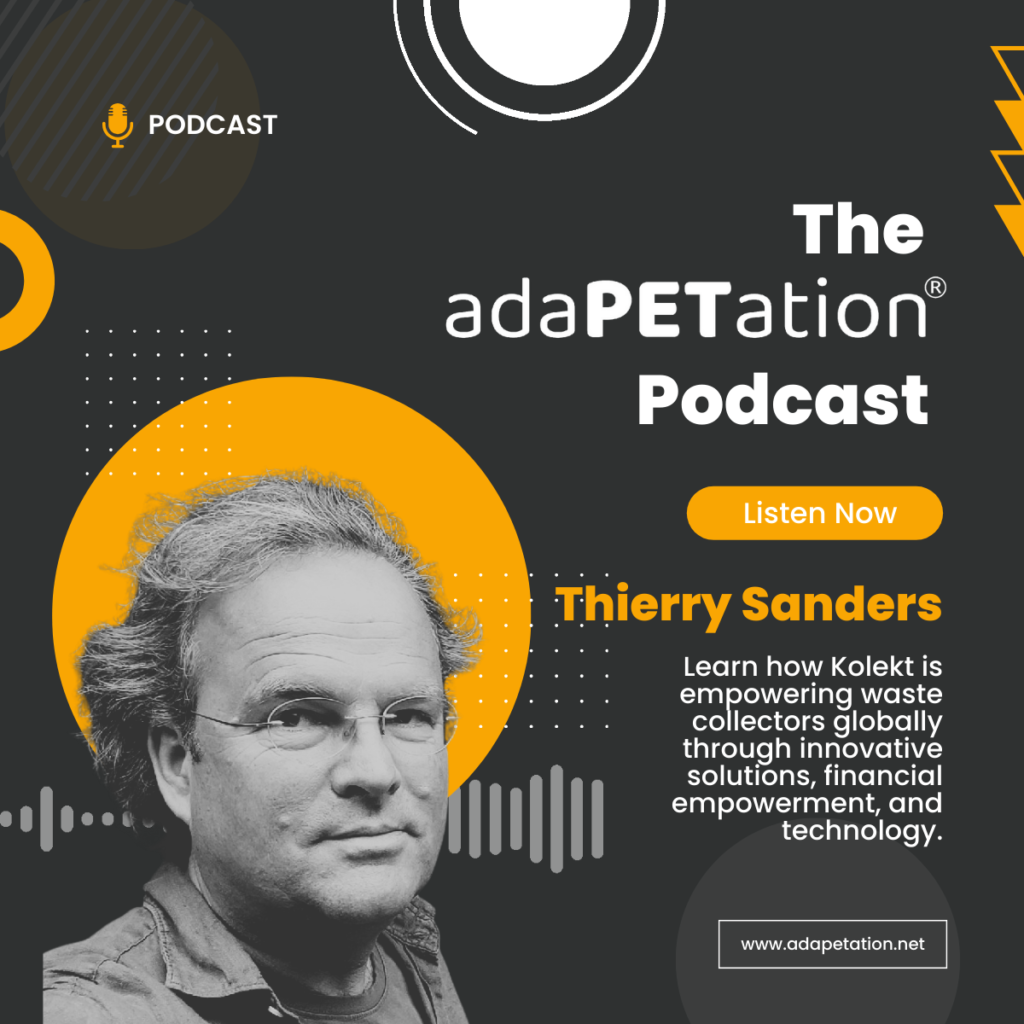
Discover how Thierry Sanders, founder of Kolekt, is empowering waste collectors globally through innovative solutions, financial empowerment, and technology. Learn key lessons from his work to improve livelihoods and tackle the plastic waste crisis at its roots.

Recognising the valuable role of waste collectors
In the battle against global waste, one of the most under-appreciated yet essential groups is the 20 million waste collectors who collect approximately 60% of the world’s recyclables. These individuals play a critical role in managing and mitigating the waste problem, particularly in emerging markets where formal waste management systems are weak or nonexistent. In a recent conversation with Thierry Sanders, founder of Kolekt, the transformative power of waste picker empowerment was brought to light, revealing important lessons for both governments and corporations seeking to address the waste crisis.
Empowerment through technology and innovation
Thierry Sanders is no stranger to addressing systemic challenges. His mobile app, Kolekt, aims to empower waste collectors by giving them access to better-paying opportunities and critical health benefits. “Waste collectors are the most efficient form of waste collection that we have,” says Sanders. The app uses geo-positioning to help waste collectors locate recyclable materials before they enter garbage trucks, where compression often renders them non-recyclable. By providing real-time information on material locations, the app saves waste collectors time and money, which Sanders describes as a “digital handshake” between the waste collectors and buyers.
Beyond improving their income, the app offers a layer of transparency and security, ensuring that waste collectors are not cheated by intermediaries. The app even incorporates face recognition technology to enable waste collectors without smartphones to participate in the system through the devices of family members or local buyers. Sanders notes that this has been particularly effective in countries like Mozambique, where “70% of all the waste collectors are women and 80% of all the waste collectors have no smartphone.”
Addressing systemic financial challenges
One of the key lessons from Kolekt’s success is the critical need for financial support systems tailored to waste collectors’ realities. These individuals often earn less than the minimum wage and lack any form of financial buffer. Sanders emphasizes the need for more comprehensive financial services for waste collectors, including savings plans, micro-loans, and insurance schemes. “If they have a safe place to save their money, we can set up a lending scheme based on their savings that is managed well,” he explains.
He also highlights the volatility of the plastics market, particularly in the context of PET recycling. In the Netherlands, two major PET recyclers recently went bankrupt due to the overproduction of virgin plastics by the fossil fuel industry. Sanders suggests that a pricing buffer could help stabilize the market, benefiting both recyclers and waste collectors.
Global solutions for local problems
One of the biggest hurdles for waste pickers is the global flow of plastics. As Sanders points out, “The price of virgin plastics is dropping because of overproduction,” driven by large corporations like Dow and Exxon. While Extended Producer Responsibility (EPR) schemes are slowly being adopted in countries like Brazil and Mozambique, these are primarily national solutions that don’t address the global scale of the plastics crisis. To tackle this, Sanders and his colleagues at BVRio have proposed a global plastics fund to handle low-value plastics, such as sachets and laminates, which are often neglected by EPR schemes. However, the challenge lies in getting multinational companies to contribute to such a fund.
Despite the hurdles, Sanders remains optimistic. Governments like Mozambique are setting a strong example by taking control of their own waste management future, implementing bold EPR regulations that require companies to pay for the waste they produce. “It’s about governments claiming their mandate,” says Sanders, who believes this could open the door to greater investment in recycling infrastructure and better wages for waste collectors.
A bottom-up financial revolution
The current financial system, according to Sanders, is failing to serve the needs of the majority, particularly small businesses and informal workers like waste pickers. Large investment firms and private equity funds focus on big deals, leaving out the smaller enterprises that generate local jobs and impact. Sanders advocates for decentralized financial solutions, such as cooperatives and peer-to-peer lending schemes, that empower waste collectorsto save and borrow within their own communities. “We shouldn’t always be looking for the solution from pension funds and the Vanguards and Blackrocks,” he argues. “We should also look among each other to see if we can set up new vehicles that work for us, and not for them.”
The way forward
Empowering waste collectors isn’t just about improving their working conditions—it’s about transforming the global waste management system from the bottom up. As Sanders aptly puts it, “If governments implement EPR schemes and don’t wait for companies to haggle, they could unlock hundreds of millions of dollars to pay waste collectors and support waste management services.” Moreover, creating savings and lending systems for waste pickers could offer them the financial stability they desperately need, helping them escape the cycle of poverty while contributing to a cleaner, more sustainable planet.
Thierry Sanders’ work with Kolekt is a testament to the power of innovation and collaboration in tackling some of the most complex global challenges. To hear more about his insights and solutions for waste collector empowerment, check out the full conversation on the adaPETation® Podcast.
LOOKING FOR MORE INSPIRATION?
Systems thinking can help us see PET plastics differently, not as an insurmountable problem but as a challenge we can collectively address. If you’re looking for more examples of inspirational solutions around the world dive deeper into the adaPETation® Solutions Network and let’s reshape our world for the better.
Share it
THE HISTORY OF PLASTIC
Throughout the history of plastic, PET has been crucial in keeping food fresh with lightweight and durable packaging solutions that have helped reduce food waste for almost a century. Learn all about the invention of plastic and the important role it has played feeding people and saving the lives of humans and elephants in the adaPETation® timeline of the history of plastic.





